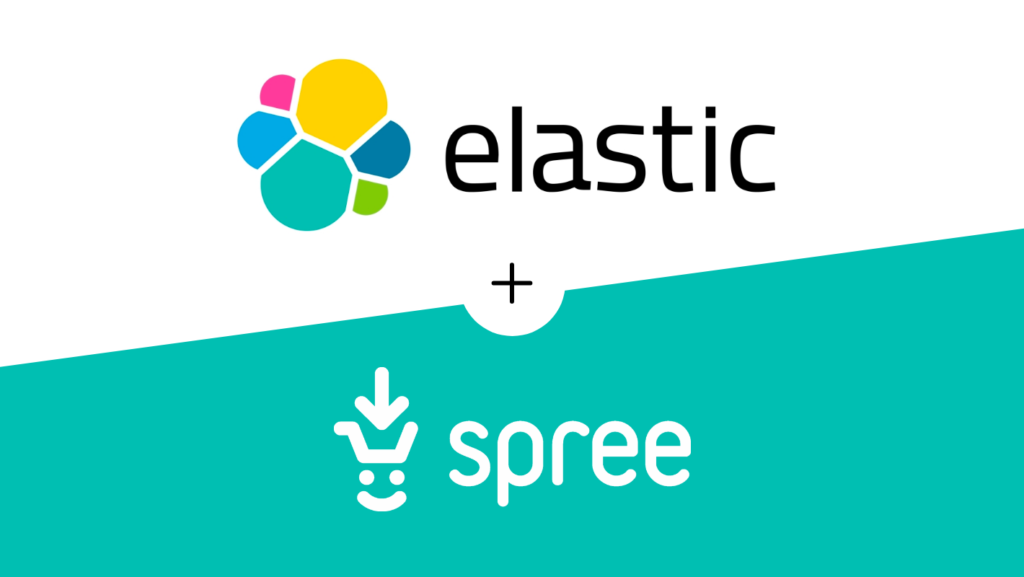
ElasticSearch and Spree Commerce integration to optimize your ecommerce User Experience
ElasticSearch can be used to optimize ecommerce user experience in the areas of search, product listings, menus, and navigation by enabling blazing-fast data retrieval and creating new up-selling and cross-selling opportunities. If you have a growing ecommerce website, then you should be looking into integrating ElasticSearch to allow its further growth.
The distinctive competitive advantages of integrating ElasticSearch with your ecommerce store are page load speed, cost-effectiveness, and scalability. But let’s start from the beginning.
What is ElasticSearch?
ElasticSearch is a distributed, horizontally scalable, open-source analytics search engine. It is built on Apache Lucene and utilizes a set of open-source tools for data ingestion, enrichment, storage, analysis, and visualization. ElasticSearch is where the indexing, search, and analysis magic happens. It provides a powerful real-time search and analytics system for all types of data such as text documents, products, images, and more.
ElasticSearch can also efficiently store and index data in a way that optimizes quick searches. Not only is it efficient at retrieving or aggregating data, but also at displaying data patterns and trends. Ecommerce use cases include blazing-fast search auto-complete and auto-suggest features, as well as related items or items from similar categories presentation – for example, product names and their corresponding images.
Before delving into the advantages of integrating ElasticSearch for your ecommerce platform, it’s worth mentioning some of the built-in features that demonstrate the benefits it brings.
Built-In ElasticSearch features
ElasticSearch Index
ElasticSearch’s index feature enhances your ecommerce store’s search request performance. It significantly reduces the time required to look up information when a user enters a text in the search query. Even if the product count is into the millions, ElasticSearch’s performance far exceeds that of any SQL database query solutions.
The search index is a database where all the information collected from a website is stored, as well as accessed with every search query. Index data is organized into multiple indices, which consist of one or more documents. These documents are then sorted into categories that correspond to the type of information that is being searched.
For example, the “ketchup” document is stored under the “Condiments” category and the document contains all the information related to that particular ketchup brand. With each ElasticSearch query, you can access multiple indices simultaneously. This feature allows for better data organization, which in turn allows for enhanced search performance and simplifies user requests.
Aggregations
If you’re looking to determine, numerically, which items in your ecommerce store are in demand, you need analytical tools to gather that information. This is where aggregations come in. ElasticSearch’s aggregations are data units that build analytical information across a set of documents.
Aggregations provide the ability to perform calculations and present statistical information on data. This data, which is gathered through a search query, are grouped and stored in a way that allows for quicker results on user-defined search requests.
Clusters and Nodes
The primary importance of Clusters and Nodes is that they facilitate replication, which is useful for scaling. A cluster is composed of a collection of multiple nodes. A node is a running instance of ElasticSearch.
Having multiple nodes in a cluster allows for shards to replicate, thereby increasing redundancy, which in turn increases overall reliability and the search results retrieval speed. Every time a node is created, it ensures redundancy in ElasticSearch, which protects your data against overload or any other failures.
Index Shards
Shards are pieces of data distributed across multiple nodes. Shards are important because they can be replicated to the point of redundancy, which allows for horizontal scalability.
Benefits of ElasticSearch for ecommerce
Speed
ElasticSearch’s search responses are incredibly fast. This is because it searches directly for the index rather than the text. Aside from the quick response times, ElasticSearch also quickly finds the best matches for your full-text searches, even from large data sets.
Time-Saving
Any ecommerce website needs simple, user-friendly tools to ensure visitors can navigate with ease. Visitors to your store will not spend more time than necessary to see what products and services you have to offer.
If you want your business to stand out, you’ll need a tool that simplifies the process of browsing through your online store. This is where ElasticSearch comes in because it’s fast; it can search and filter millions of records in a relatively short time. This is why it’s perfectly suited to improve your ecommerce user experience, giving you a competitive advantage.
Cost-Effective
Having a single solution for search and up-selling based on what your clients are searching for greatly improves business KPIs at a relatively low cost of development and maintenance. With ElasticSearch capabilities it is quite easy to present alternative buying options and adjust your up-selling and cross-selling strategy.
You won’t need another solution to collect marketing analytics for your store when ElasticSearch can provide recommendations by analyzing the data in real-time and catering to individual customers. Not only is ElasticSearch cost-effective because it’s open-source, but it also helps you save money on 3rd party tools, integration, and maintenance efforts.
Scalability
One of the features of ElasticSearch is that multiple nodes create redundancy. This is one of the key features because it means that ElasticSearch is designed to be horizontally scalable. Adding more nodes to the cluster increases the capacity of the cluster without an exponential cost increase, as with vertical scaling.
Having this feature for your ecommerce store is paramount because it allows for affordable performance optimization and improves user experience regardless of the volume of visitors.
Staggering conversion boosts after implementing ElasticSearch
MilanStyle.com is a luxury & fashion marketplace that offers over 750 thousand luxury items from top boutiques all over the world. They saw a 45% increase in conversion rates after launching their new mobile-optimized platform, running on the open-source Spree Commerce framework.
Looking to improve their customer experience, Milanstyle.com found themselves being limited by their old platform’s functionality and lack of scalability. Some of the major issues they were facing included product count capacity, slow page loads speed, and slow product XML data feed imports.
Spree Commerce was able to successfully scale Milanstyle.com to 10 times the size of its old website, ensuring improved user experience through the implementation of ElasticSearch to allow for quick searching and filtering of millions of records.
The implementation of ElasticSearch meant that Milanstyle.com benefitted from its features such as autocomplete, and faceted search, improving user experience by suggesting results and adding filters to refine searches. It also allows users to be directed to the right content, by creating queries between search items. The built-in analytics tracks and analyzes user search behavior performance, providing valuable insights into where your search engine could be improved or could be customized.
Stay ahead of the ecommerce game
It’s in your best interest to stay ahead of the game to ensure you aren’t being outrun by your competitors. Consider looking into ElasticSearch as a means of optimizing your website’s search and product listing performance. The key advantages of ElasticSearch are its speed, time-saving, cost-effectiveness, and scalability features.
ElasticSearch reduces a user’s search-time when looking for a product. It’s free, open-source, and allows you to save money on marketing via product recommendations for users. Most importantly, ElasticSearch enhances your website’s scalability, meaning your website’s user experience won’t be affected by the unexpectedly high volume of visitors.
ElasticSearch allows you to boost your conversion rates by having a website that’s efficient, easy to navigate, and relevant for end-users.



